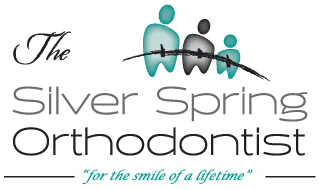All About Braces Care and Tips
Wearing braces is an exciting step toward a straighter, healthier smile, but it also comes with a few important changes to your daily routine. We’re here to help make your orthodontic journey as smooth and comfortable as possible with tips for caring for your braces, managing discomfort, and protecting your progress.
Brushing and Flossing with Braces
Keeping your teeth and gums clean is more important than ever during orthodontic treatment. Braces create extra areas where food and plaque can hide, so proper oral hygiene is key to preventing cavities and gum issues. Patients who don’t maintain good oral hygiene may require more frequent cleanings from their dentist. Adults with a history of gum disease should visit a periodontist during their orthodontic treatment.
Here’s what we recommend:
Brush after every meal using a soft-bristle toothbrush and toothpaste
Floss daily with floss threaders or orthodontic floss picks to reach between brackets and wires
Use an interdental (proxy brush) to gently clean around wires and brackets
Consider a water flosser for added effectiveness
Eating with Braces: What to Avoid and What’s Okay
One of the most common questions we hear is, “What can I eat with braces?” You won’t have to give up all your favorite foods forever, but you will need to avoid items that can damage your braces.
In the first few days after getting or adjusting braces, stick to softer foods. As your mouth adjusts, you can slowly return to your normal diet—but be cautious and protect your appliances.
Foods to Avoid During Orthodontic Treatment:
Chewy foods – granola bars, pizza crust, dried fruit
Crunchy foods – cereal, tortilla chips, ice cubes
Sticky foods – fruit snacks, honey, toffee, chewing gum
Hard foods – popcorn kernels, biscotti, jawbreakers
Foods that require biting into – pears, apple on the core, meat on the bone
Non-food habits – chewing on straws, hair, or bottle caps
Damaged braces can delay your treatment, so it’s important to follow these guidelines.
General Soreness and Loose Teeth
It’s completely normal to feel some discomfort when you first get your braces or after adjustments. Here’s what you can expect:
Your teeth may feel sore or tender for 3–5 days
Over-the-counter pain relievers like Advil or Motrin can help ease the discomfort
Lips, cheeks, and tongue might feel irritated for 1–2 weeks as they adjust
We provide orthodontic wax to reduce irritation—just apply it where needed
You may also notice your teeth feel slightly loose. Don’t worry—this is part of the process. Your teeth must loosen slightly before they can shift into their new positions.
What to Do About Loose Wires or Brackets
Occasionally, a bracket or wire may come loose. If this happens:
Use a pencil eraser to gently push the wire back under the archwire
Apply orthodontic wax or wet cotton to the area if irritation persists
Call our office to schedule a repair appointment
There’s no need to panic, these issues are common and can be easily fixed with a quick visit.
Rubber Bands are the Key to Faster Results
Wearing rubber bands (elastics) as prescribed is critical to achieving your treatment goals. These small bands help align the bite and move teeth into their proper position.
Wear your rubber bands exactly as directed—consistency is key
Skipping or wearing them inconsistently can prolong treatment time
Your cooperation helps us move your treatment along smoothly!
Playing Sports with Braces? Protect with A Mouthguard
If you or your child plays sports, sspecially contact sports, be sure to let us know. We will provide an orthodontically approved mouthguard to help protect your teeth and braces from injury.
Wearing a mouthguard is essential to avoiding injury and keeping your treatment on track.
